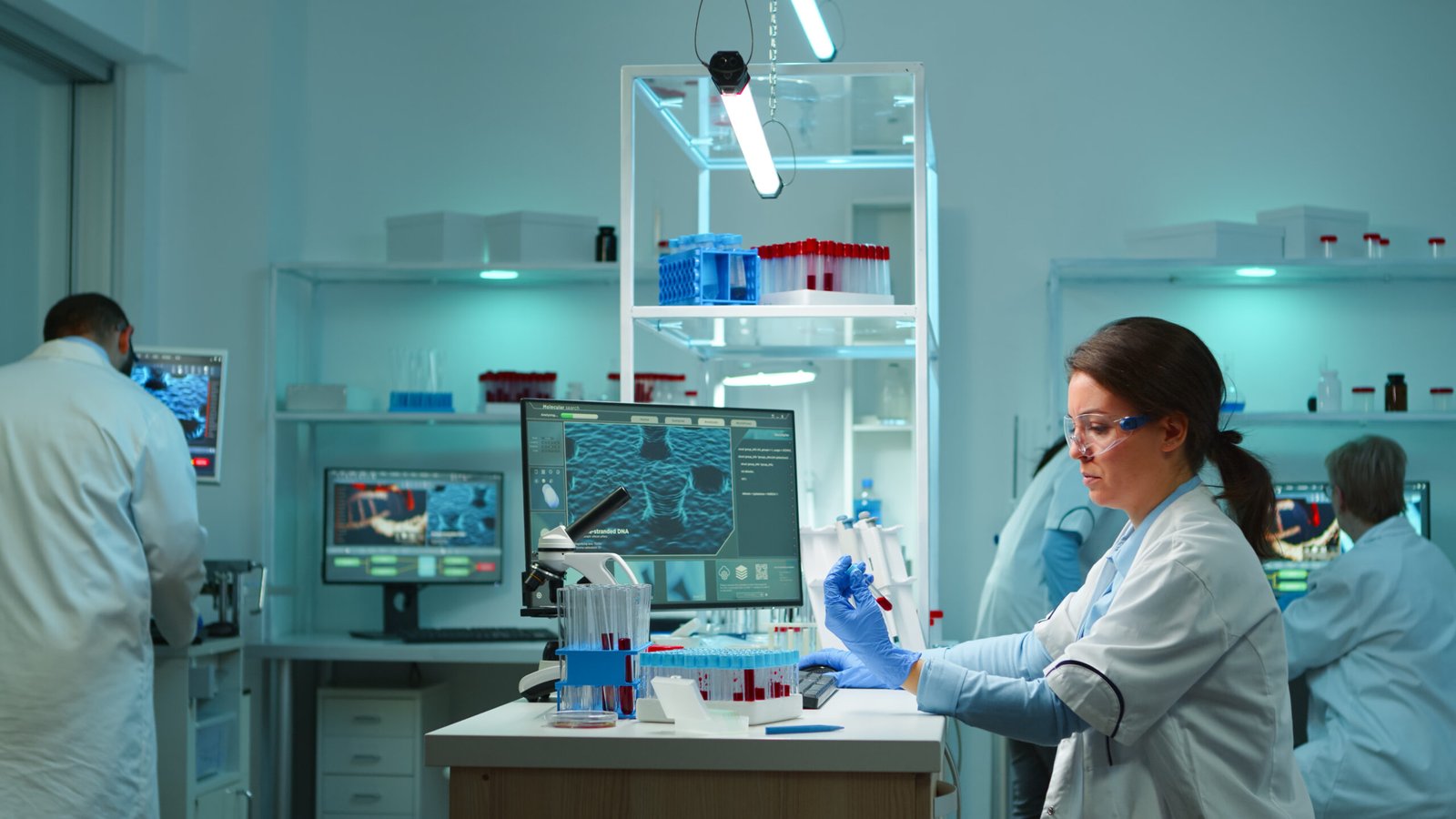
The Clinical Biochemistry department at Vihaan Hospital and Research Centre is a vital part of the hospital’s diagnostic services, playing a key role in patient care. Equipped with the latest technology and instrumentation, the department offers a comprehensive range of biochemical analyses crucial for accurate diagnosis and treatment planning. Staffed by experienced biochemists, technologists, and support personnel, it operates with the highest standards of precision and efficiency. The department specializes in analyzing blood, urine, and other body fluids, providing essential data on kidney function, liver function, electrolytes, hormones, and metabolic disorders. Its commitment to quality and timely results makes it an indispensable resource for clinicians and patients alike.
Clinical Biochemistry F&Q's
Clinical biochemistry encompasses the analysis of blood, urine, and other body fluids to diagnose and monitor diseases. It focuses on measuring chemical components such as enzymes, hormones, and electrolytes, and plays a critical role in understanding the physiological and pathological state of the body, aiding in the diagnosis, treatment, and management of various diseases.
Clinical biochemistry assists in diagnosing metabolic diseases by analyzing metabolites and enzymes in the body fluids that reflect the metabolic processes. For example, blood glucose testing is essential for diagnosing diabetes mellitus, and the measurement of cholesterol and triglycerides helps in identifying lipid metabolism disorders. The detection of specific enzyme deficiencies can also indicate metabolic diseases such as phenylketonuria (PKU) or galactosemia.
Biomarkers are biological molecules found in blood, other body fluids, or tissues that are a sign of a normal or abnormal process, or of a condition or disease. They are important in clinical biochemistry because they can be measured and evaluated as indicators of biological or pathogenic processes or pharmacological responses to a therapeutic intervention. Biomarkers help in early disease detection, monitoring disease progression, and assessing the effectiveness of treatments.
Enzyme assays in clinical biochemistry are significant because they measure the activity levels of specific enzymes within the body, which can indicate the presence of a disease or provide information about the severity of a condition. For example, elevated levels of liver enzymes such as alanine aminotransferase (ALT) and aspartate aminotransferase (AST) can indicate liver damage or inflammation. Enzyme assays help in diagnosing conditions, guiding treatment decisions, and monitoring response to therapy.
Electrolyte tests are used in clinical practice to measure the levels of key ions such as sodium, potassium, chloride, and bicarbonate in the blood. These tests are crucial for diagnosing and managing a wide range of conditions, including dehydration, kidney disease, heart disease, and disorders affecting the balance of electrolytes. Abnormal levels can cause a variety of symptoms and may indicate serious health issues that require immediate attention.
In the era of personalized medicine, clinical biochemistry faces several challenges, including the need to develop and validate new biomarkers that can accurately predict individual responses to specific treatments. There is also the challenge of integrating complex biochemical data with genetic, environmental, and lifestyle factors to create personalized treatment plans. Additionally, clinical biochemistry must adapt to rapid technological advancements and ensure that laboratory professionals have the skills and knowledge to interpret increasingly complex test results accurately.








